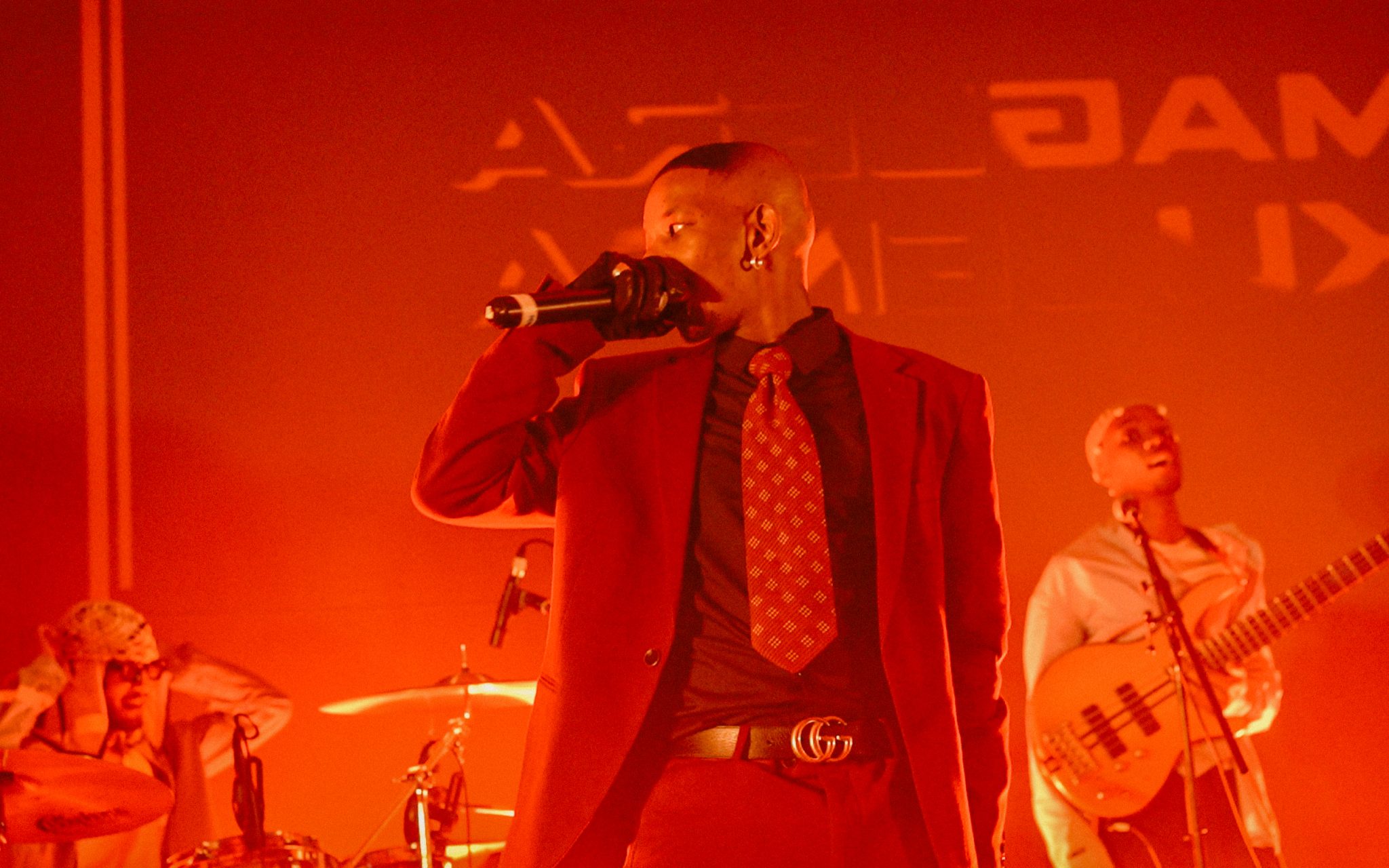For a few hours on the evening of the first Thursday of September, Cape Town’s music scene witnessed a shift. When Aloe Aloe and Quiet Life Co staged Maglera Doe Boy alongside Kujenga, it wasn’t merely a show; it was history being written in real time.
The city’s live scene has had its fair share of high points, but this was different. One of South Africa’s most accomplished and globally relevant rappers, Maglera Doe Boy, sharing not just a bill but a stage with the country’s most exciting young jazz outfit — that’s not something you stumble across often. Add to that the fact that they performed together, blurring lines between two genres that rarely coexist in this way, and you begin to grasp why this night felt both poetic and radical.
The Build-Up
From the outset, it was clear the curators weren’t interested in simply stacking artists one after the other. Senhorâ opened with soulful textures that eased the crowd into intimacy. Nalu maintained the mood with a laid-back set and back-up dancers, only for Internet Girl to flip the script completely. Their electronic-heavy performance was sharp, unrelenting, and exactly what the room needed — a jolt of energy that had bodies moving and voices raised. By the time Kujenga prepared to step on stage, the audience was alive, restless, and primed.
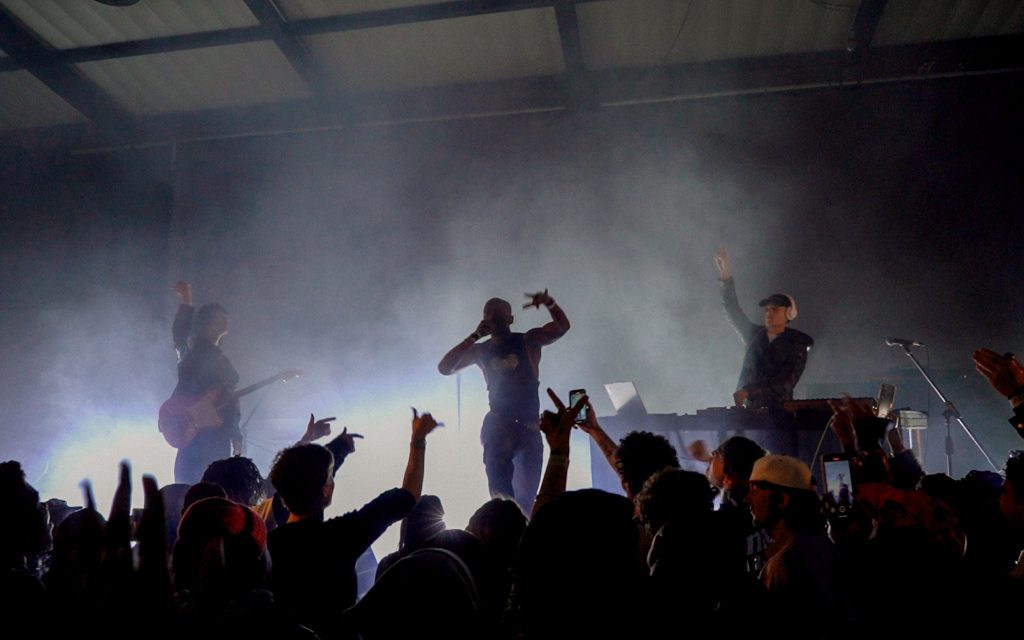
The Future of South African Jazz
Kujenga aren’t just playing shows anymore — they’re leading a movement. Their ensemble bridges deep-rooted jazz traditions with a youth-driven urgency that has reawakened interest in the genre among young South Africans. On this night, they delivered a masterclass. Horns cut through layered rhythm sections; percussion locked in with improvisational flares; textures evolved as if each song was being born in the moment.
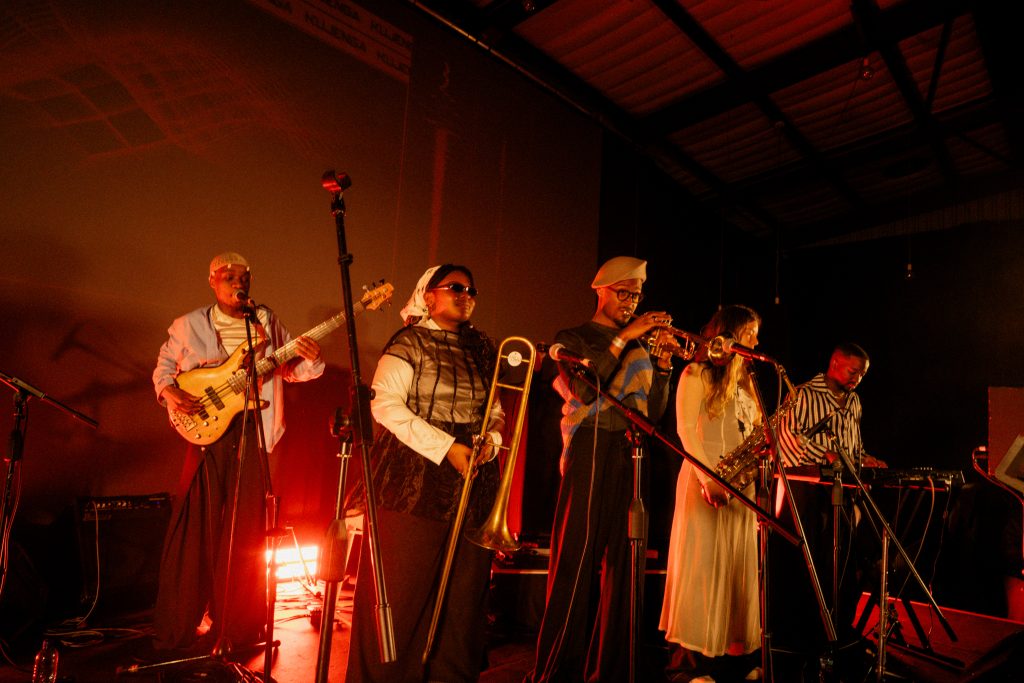
What made the set so gripping wasn’t perfection but intention. Kujenga played with a looseness that felt spontaneous yet deliberate, and the crowd swayed in unison. This wasn’t background jazz or intellectual noodling; it was visceral, relevant, and magnetic. They had the audience in their hands before a single verse of Maglera had even landed.
You Are Now Tuned Into the Township
When Maglera walked out in a full maroon suit and black leather gloves, silence and attention followed. He opened with Memoirs, his cadence slicing through the venue like a sermon. In recordings, Maglera’s delivery carries grit and gravity, but live, it was something else — sharp, weighty, urgent.
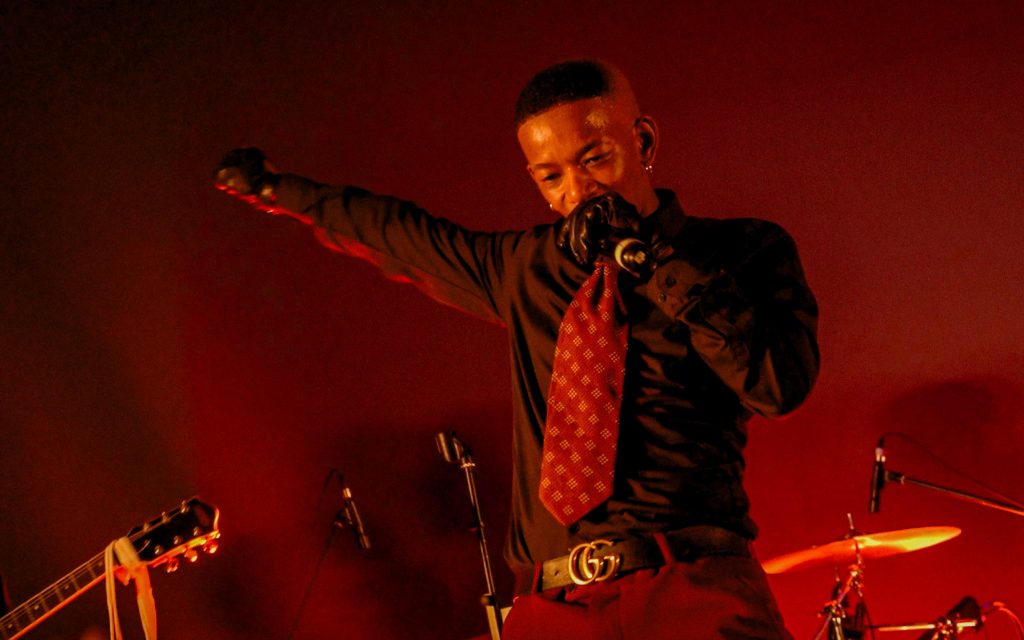
Every bar was met with a visceral response. Some verses the crowd shouted back line for line; others they simply absorbed in stunned quiet. Maglera wasn’t just performing; he was anchoring the space, embodying the pride and pain that has made him one of South Africa’s most respected hip-hop voices. By himself, it would have been a standout set. But then, the walls between genres dissolved.
The Collaboration: Jazz Meets Township Rap
The moment Kujenga and Maglera fused their crafts, the night became legendary. South African stages don’t often play host to collaborations like this, where jazz and hip-hop meet as equals rather than curiosities. Yet here it was: Maglera’s voice laid bare against live horns, his verses cushioned by a rhythm section that elevated his every syllable.
What could have been experimental instead felt natural, almost inevitable — as if the genres had been waiting for this collision. The band didn’t drown him out; they amplified him. His voice didn’t just ride the music; it sharpened it. The crowd felt it instantly. Barriers between “rap kids” and “jazz heads” dissolved into a singular, pulsing mass of energy.
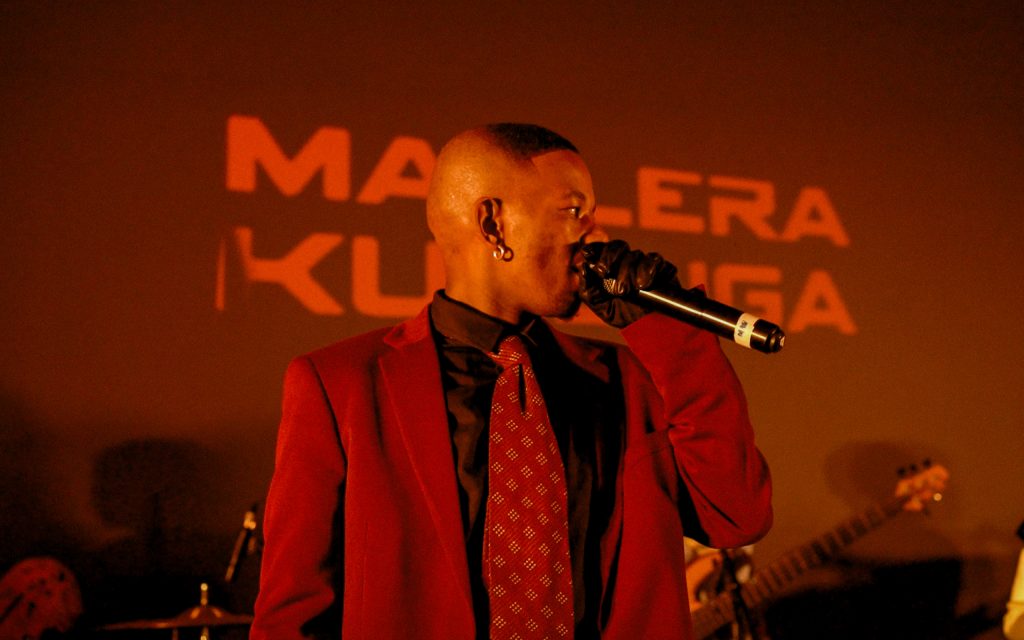
And when the band first came in behind Maglera, the joy couldn’t be hidden on his face. For a moment, the hard edges of his delivery gave way to something else: the thrill of hearing his words expanded by live instruments, a grin breaking through as if he too was surprised by how good it sounded.
And a special mention must go to Kujenga’s electric guitarist, Thane Smith. The genre-flip demanded something new of him, and he delivered in full — peeling off riffs and solos that we’d never seen from him before. It wasn’t just accompaniment; it was the kind of playing that pulled gasps and cheers from the crowd, showing how much stretch and fire exists in this band’s DNA.
It was the kind of collaboration that doesn’t just sound good in the moment but shifts expectations of what South African live music can be.
Not Just Another First Thursday
Cape Town has seen countless First Thursday events, many blurring together into routine. But this night shattered predictability. Senhorâ, Nalu, Internet Girl, Kujenga, Maglera, and finally Slow Poison on decks — every act fed the next, building momentum until the headliners rewrote the script entirely.
The crowd was diverse, spanning hip-hop purists, jazz aficionados, and curious passersby who likely left as converts. By the end, it felt less like a gig and more like a collective awakening: proof that when promoters take risks and artists embrace collaboration, Cape Town’s live scene can feel thrillingly alive.
This was more than a concert. It was a statement — one that might just mark the unofficial start of the summer and, perhaps, a new chapter for South African music.

